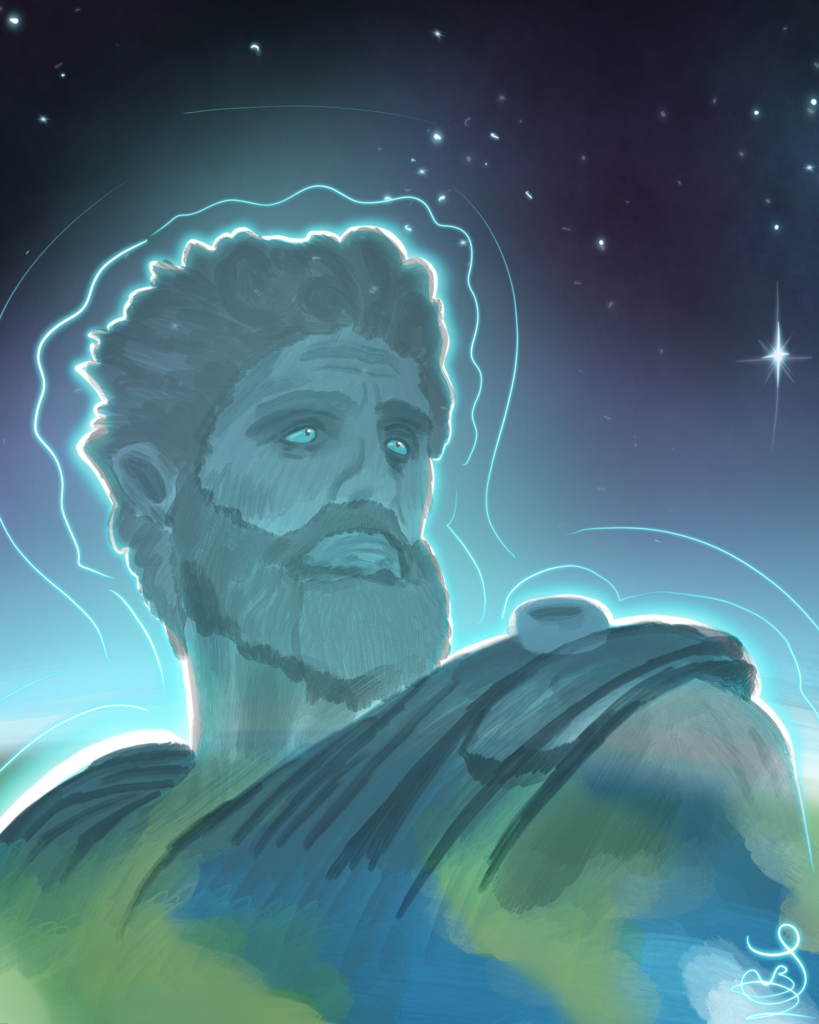A Stoic View on the Concept of a Rational Mind
By Ana Ana-Ilinca BORCOMAN
Edited by Nil ALPER
As humans, we possess “rationality”, which can be defined by our capacity to act according to reason. Even so, we all acknowledge that our decisions are impervious to influence, and we account for emotional factors that affect our daily choices.

When humans are given circumstances where a morality-relevant decision is to be taken, we often believe that expressing honesty is the more pragmatic option. However, this virtuous decision can quickly be consumed by our feelings and emotional intellect and consequently alter into an immoral one.
We often refer to our rationality as a part of “a dual concept”, the brain and the heart, the two precise factors that are balanced by the side of ourselves that thinks emotionally.
However, how real is this separation, additionally can one argue against it?
Most philosophical judgements and ideologies stem from the same Mediterranean origin. In ancient Greece, the enlightened thinkers of antiquity progressed our civilization towards numerous developments, across a multitude of fields of knowledge. All the triumph of the discovery of modern morality and reason, and the beginning of ethics.
Stoicism is a Hellenistic philosophy whose school was founded by Zeno of Citium in c. 300 BCE. Stoicism can often be presented in a harsh light and give a paradoxical impression, with statements that may contradict themselves, but once one understands the holistic character of this line of thought, it becomes clear how its ideas seamlessly fit and flow through our everyday dilemmas.
The Stoic belief enforces the idea that human beings, as rational creatures, should live in accordance with nature. It entails that the natural world is one where righteousness is inherent and operates through order. This is known as logos. The strong emotions that interfere and disrupt the natural order are called thumos – anger.
It important to note that stoic teachings advocate against the existence of dual forces at play in the process of decision-making, while also attributing this mentality to a surface level understanding of rationality. Hence, they believe in the existence of singular rationality.
What exactly is singular rationality?
Singular rationality is commonly employed, when humans are presented with tough scenarios and must conduct the decision to make use of the ability to reason. A relevant example is as follows;
Imagine you are arguing with your friend. You both swell with passion at debating a subject that you feel deeply for, yet you strongly disagree with their perspective.
In that moment of confusion, you are overcome with a darkening haze of emotion, left speechless and pushed to a point where you must decide. Either you respond calmly to their comments, express yourself through a manner of propriety and promote peace, or, exert the opposite, lash out, harshly and unabashed, tear down your friend while consciously risking the loss of their friendship.
In a dual rationality approach one would be experiencing two contradictory internal forces while making this decision. Those two being; logos – the logical option of remaining calm and civil, and thumos – the intense emotions that overcome your ability to think rationally, often leading to the second option being enacted.
The Stoic view contests this reasoning and often condemns it, defining it as a path to evade the responsibility that comes with one’s own actions.
When discussing rationality, we must regard the person as a whole and not split into parts. While deciding, one would still have clear thoughts, and through them one could either resolve to act in one way or the other.
Hence you are provided with two options, either give weight to your anger or to the care that you have for your friend. Therefore, you will be oscillating between different decisions as a whole. An angry person does not cease to reason, instead, they let their reasoning be dictated by anger. Stoics believe that logos will always govern thumos.
This perspective is very common in situations where revenge plans are at play.
If you were to meticulously plan a scheme against your friend, as a means of revenge for their harmful behaviour, you would be acting rationally by the means of logos but simultaneously guided by anger and a lust for revenge – thumos.
Stoics believe that the human soul is not split into parts but rather one whole that always operates rationally.
Anger can stem from the false judgement of intangible things, like your friends’ rude remarks potentially harming you. Stoics encourage reflection and patience, and an understanding of how external matters do not affect your inner virtue and self worth.
One of the most prominent Stoic philosophers was also one of the greatest Emperors of antiquity. Marcus Aurelius (121-180 CE) ruled during the prime of the Roman Empire. His great military leadership and tactical rule led to stability during a trying time of war. He is revered and remembered as a symbol of the Golden Age of Roman wealth. Though he is praised for his qualities as a leader, he remains most famous for his philosophical work “Meditations” which reflects stoic ideals.
“You have power over your mind — not outside events. Realize this, and you will find strength.”
(Meditations 4.3)
This quote perfectly captures the essence of Stoic rationality; maintaining a focus on one’s own thoughts and reactions without being disrupted by external events beyond one’s control. Strength and peace come from aligning our mindsets with the reason and virtue that guides us.
Conclusively, Stoicism paves way to a powerful framework for living with resilience, virtue and inner peace. By focusing on what is within our control – our thoughts, actions and responses – humans can navigate through any challenge with composure and clarity. This timeless philosophy encourages us, humans, to navigate through challenges with composure and clarity, while also rising above the haze and finding true freedom, through the rationality of our minds.
